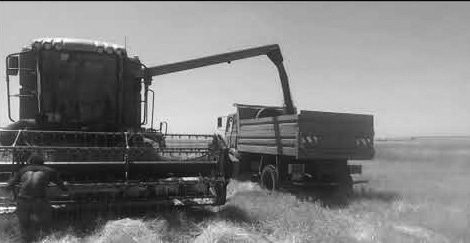
Ethiopia has vast hectares of land suitable for mechanized agriculture. But only a small portion of it has been utilized so far, Realizing the importance of mechanized agriculture for ensuring food sufficiency and enhancing export-oriented-agro-processing industry, the government has been striving to bolster modern agriculture and irrigation system.
Among the drought-prone areas in Ethiopia is Tigray state. Having understood this, the state’s agriculture bureau and other stakeholders have been hard at work to ensure food security through agriculture mechanization, says Haftu Haile, Mechanization Agriculture Acting Coordinator at Tigray Agriculture Bureau.
Even if food security has not been fully guaranteed so far, agriculture produce and productivity have been increasing from time to time in Ethiopia especially in Tigray state, Haftu states. Environmental rehabilitation works are ascribable to the turnaround witnessed. He adds that massive scale soil and water conservation schemes are being undertaken throughout Tigray to restore the depleted forest and denuded soil resources. Fruitful results have been gained for the last two decades now.
‘‘Significant reforestation activity has been accomplished in our state. Terracing as well as water and soil conservation practices have helped recover soil fertility and bump up produce and productivity. Yet still many works remain to be done,’’ he notes. According to him, agricultural mechanization would be the only viable solution that could warrant food security and irrigation mechanization is being introduced in some parts of the state.
The rural people of the state still lead life leaning on subsistence farming. More than one million people depend on safety net programs for their livelihood, Haftu explains. The state government, in collaboration with the federal government, is working to change this scenario.
‘‘Irrigation schemes are becoming our important tools to lift our people out of abject poverty. If irrigation mechanisms are implemented properly, 450,000 hectares of land will be cultivated via a mechanized farming in Tigray. We are striving to empower smallholder farmers to till their land using tractors.We are helping them to turn their faces from rain dependency to irrigation system. So far, we have gained encouraging results. Scaling up results would be our next task as well,’’ the coordinator points out.
Though Ethiopia is blessed with ground and surface water, it has not utilized its abundant water resources for agricultural mechanization, says Wondiwesen Tamiru Lecturer at Addis Ababa University, Department of Geography and Environmental Studies. ‘‘Ethiopia is known as the water tower of Africa due to its plentiful water resources. There are several rivers (some of them are transboundary) that would transform the nation’s agriculture through mechanized irrigation system. They should be harnessed effectively.’’
He adds that beyond securing its food sufficiency, the nation should develop large -scale mechanized farms that would have pivotal role in enhancing export trade. ‘‘Smallholding farmers should be supported to produce commercial crops. When they start commercializing their agriculture, they could maximize their income. Agriculture produces, which are vital inputs for agro-processing industries, need to be boosted in mechanized way of agriculture,’’ the lecturer underscores.
Wondiwesen notes that there is about 15 million hectares of land in Ethiopia that could be utilized in mechanized irrigation scheme. But only five percent is utilized in a mechanized way. The nation owns vast fertile lands in states likes Gambella, Oromia and Benshangul Gumuz. The lands could be developed through agriculture mechanization.
‘‘Ethiopia shouldn’t be affected by drought and other climate change related catastrophes. Nevertheless, due to time-old backward farming system, it is still struggling to secure its food sufficiency let alone producing for export trade. This scenario should be addressed,’’ he insisted.
Despite encouraging results, Ethiopia faces tough task ahead regarding enhancing agricultural mechanization. But first, challenges such as lack of irrigation dams, shortage of feasible research on environmental and ecological dangers as well as lack of skilled agriculture experts must be addressed to achieve the intended goal.
The Ethiopian Herald, August 18/2019
BY TSEGAY HAGOS




